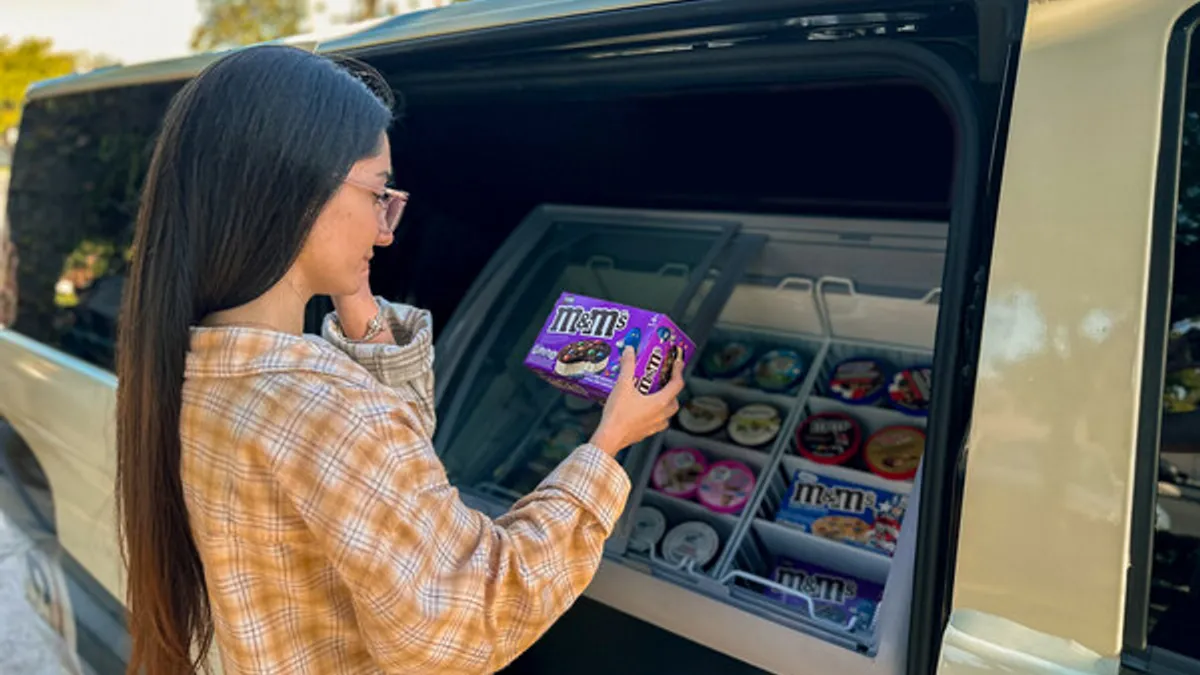Dive Brief:
- A store-hailing pilot between Conjure and food company Mars has launched in Los Angeles to bring on-demand mobile ice cream stores directly to consumers, according to a Monday press release.
- Stocked with Mars brand treats, Conjure’s fleet of mobile stores will be available to consumers to order ice cream from their smartphones and have it delivered in just two minutes.
- Conjure, formerly known as Robomart, has launched store-hailing pilots with two major suppliers as it looks to quickly get impulse purchases in the hands of tech-savvy consumers.
Dive Insight:
The pilot between the two companies will initially launch in Hollywood, California, this spring with plans to expand to more unspecified locations later in the year, according to the announcement. Offered in the mobile market are staple Mars treats, including M&M’s cookie sandwiches and Snickers ice cream bars.
Customers can hail one of Conjure’s mobile ice cream markets directly to their location with the company’s one-tap ordering process and app. Conjure also offers a checkout-free system, meaning all customers have to do is pick their ice cream product.
“Mars' ice cream brands are the perfect addition to our platform, and we believe this partnership will be a game-changer in the ice cream industry,” Ali Ahmed, co-founder & CEO of Conjure, said in the press release.
Mars executives note in the announcement that this is the first store-hailing integration for its ice cream products, and that the program addresses the problem of ice cream melting before customers make it home or it is delivered through other services.
In addition to Mars, Conjure also offers products from Ben & Jerry’s, Talenti and Coolhause ice cream brands, according to the company’s website.
Conjure, which rebranded from its former name, Robomart, in November, launched a similar ice cream delivery pilot in Los Angeles last May with Unilever.
Store-hailing technology is looking to capitalize on the same demand for quick delivery that has helped propel companies like Gopuff and Dashmart — though the service remains unproven on a larger scale. Grocers, meanwhile, have dabbled in non-automated mobile markets, particularly when trying to reach underserved neighborhoods. In early January, Washington, D.C. residents East of the Anacostia River welcomed Curbside Groceries, a mobile grocery store created by Capital Area Food Bank, after the closest grocery store closed, limiting their access to food.













